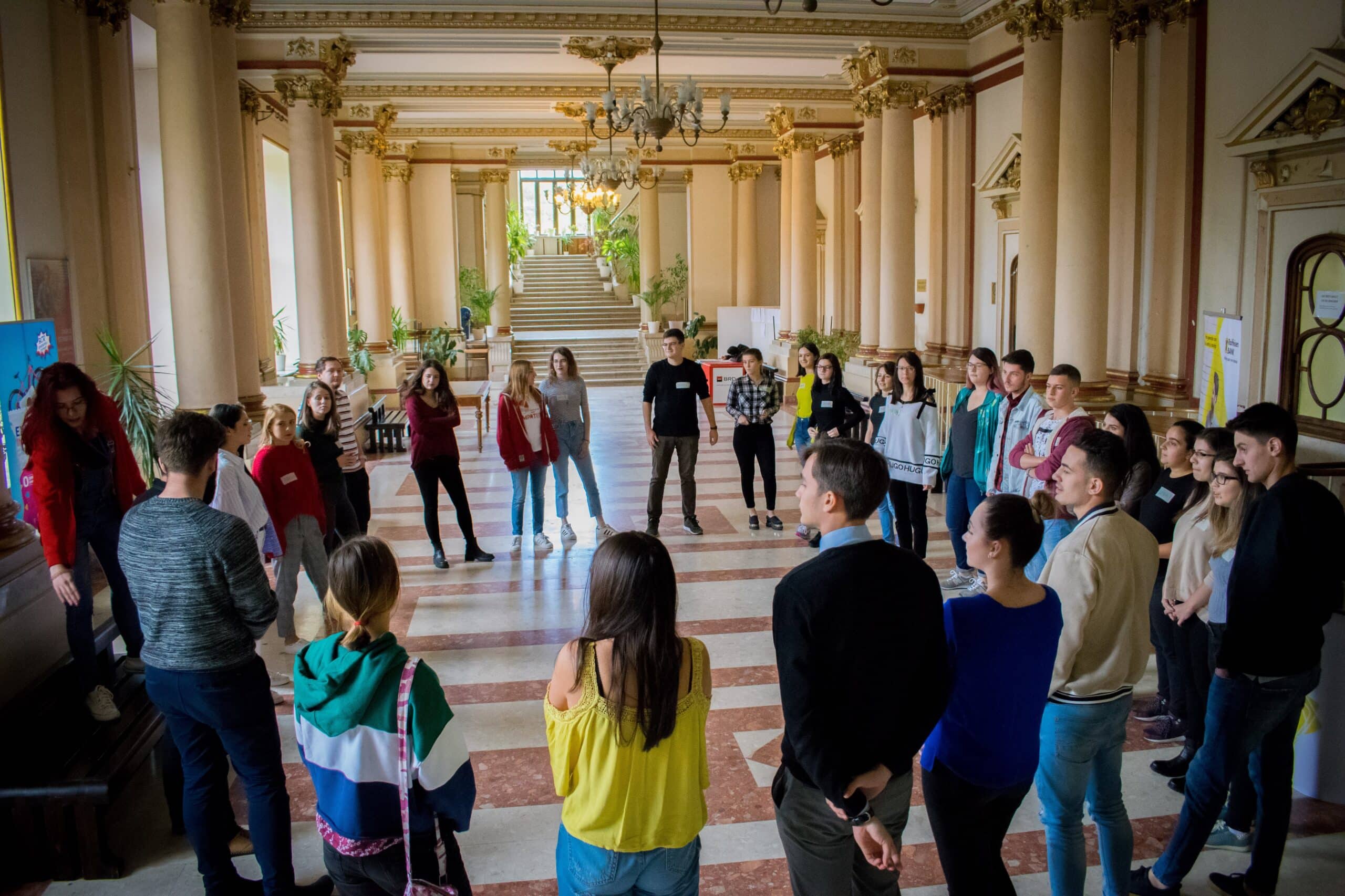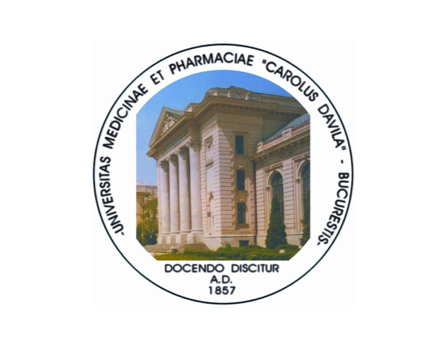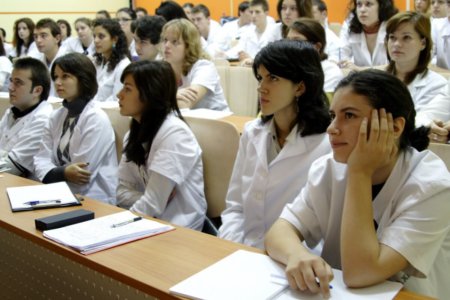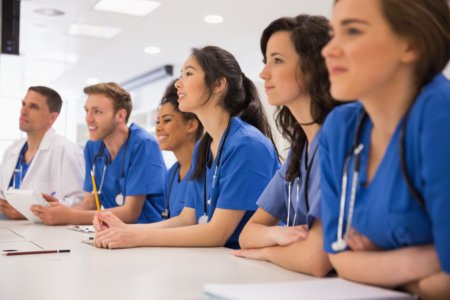The desire to help as many people as he can brought Teodor Toma to Carol Davila University of Medicine and Pharmacy (UMPCD). The 25-year-old says he’s had this dream since elementary school. Further inspired by his father’s work in the world of medicine, he chose to become a medical doctor.
UMPCD ticked all the right boxes for Teodor: highly qualified teachers, practice-focused learning, and a supportive environment.
Standing proud and tall in the cultural, financial and entertainment capital of Romania, UMPCD offers programmes in English, Romanian, and French. “I chose the English module because I saw the opportunity to study medicine in a foreign language,” says Teodor. He adds that he particularly enjoyed microbiology and radiology classes. “In my second year, I had the microbiology class and our professor was exceptional. He knew how to inspire us and classes with him weren’t boring at all,” says Teodor.
When the COVID-19 pandemic suspended schools and universities, UMPCD pivoted quickly to using digital means of teaching. “In radiology, although we were in the pandemic, classes were interactive and that was key in the bonding between students and professors,” Toma says.
All of this is made possible thanks to how UMPCD tackles its programmes with one goal in mind — the students. The Faculty of Medicine offers 127 subjects that cover infectious diseases, gynaecology, paediatrics, virology, oncology, and many more. The Faculty of Dentistry is equally as appealing, offering 45 subjects, spanning genetics, oral rehabilitation, periodontology and beyond.
What makes these faculties stand out from what is offered everywhere else? The answer is its practice-focused learning which takes students to 37 university teaching hospitals. Seeing how experiential learning enlivens curricula, the Department of Medical Simulation was established recently.
It aims to develop clinical skills and reasoning abilities through the hands-on use of innovation and technology. Here, students are in a safe and controlled environment to practise medical manoeuvres and take on challenges without harming patients. This results in graduate doctors competent and confident to handle cases or possible complications that may arise in real-life situations.
Lecturers have seen a marked improvement in critical thinking and communication skills among students. These are crucial because as doctors, one needs to collaborate efficiently and make split-second clinical decisions in a high-stress scenario.
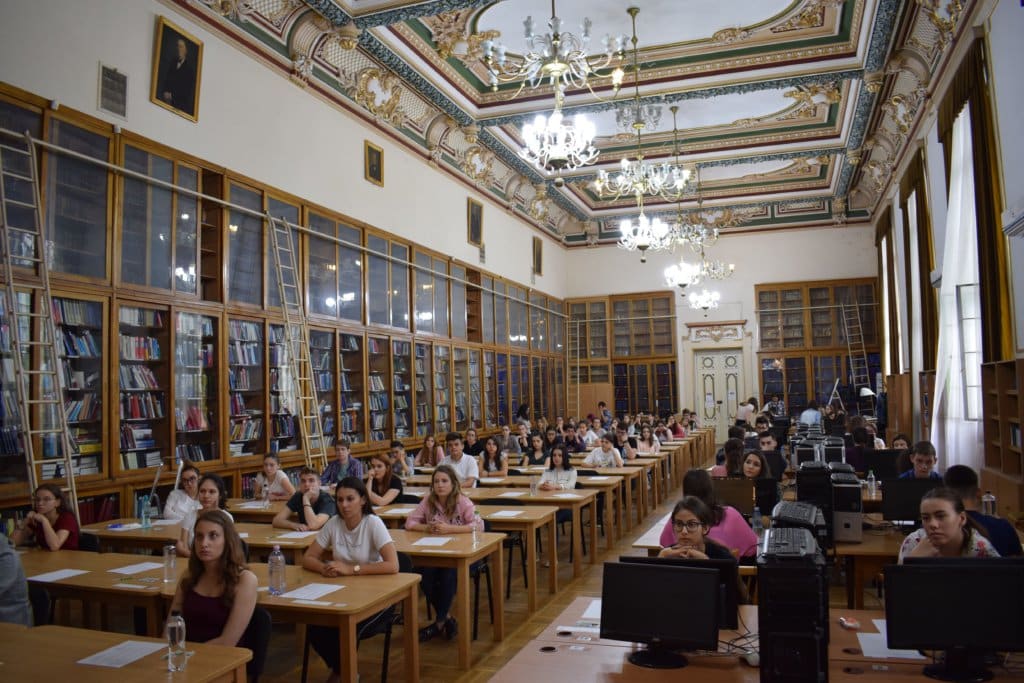
Students are equipped with the knowledge and skills to prepare them for the real world. Source: Carol Davila University of Medicine and Pharmacy
UMPCD’s investment in technology is helping students learn better. This can be seen at its 3D Printing Centre, which looks to implement, encourage and support the use of the advanced machine for medical purposes. For instance, in a workshop held last December, 40 students had the opportunity to interact with personalised medical models made with the latest 3D printing technologies. They also practised reporting and post-processing of imaging exams (CT, MRI) and the creation of digital 3D reconstructions.
While technology opens many new modes of thinking, nothing beats libraries and the impact of books within them. The university’s libraries in the Faculty of Medicine offer many quiet spaces to study and plenty of resources to pick through. Students can browse through medical databases and scientific journals during their free time to gain more knowledge.
For the dentistry faculty, an Interdisciplinary Centre for Research and Development in Dental Medicine gives access to the latest generation of simulators that are designed to ease the process from preclinical to clinical. It has the first ever computerised milling machine in Europe, used to make dental crowns, bridges, dentures, and others.
Such facilities let the university realise its mission of initiation, evolution and excellence. This is what drives teachers and students to excel and to continue innovating in their journeys. Its greatest strengths, however, are the people within the walls of the university who are always striving to make a difference — especially when it comes to building a supportive community.
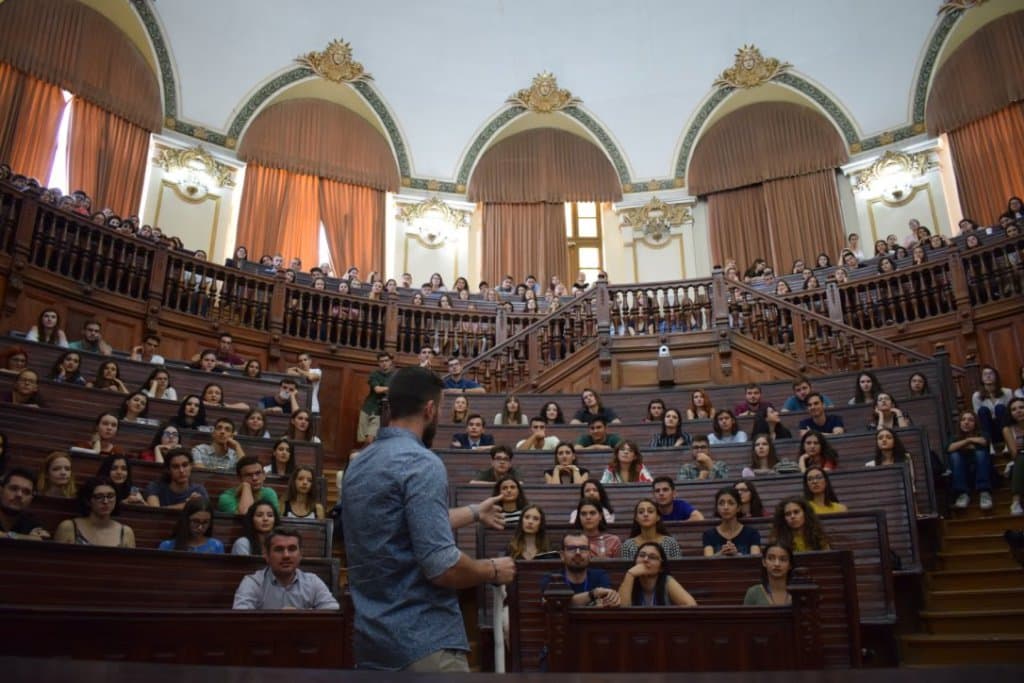
The university has a diverse, vibrant community of students from all over the world. Source: Carol Davila University of Medicine and Pharmacy
Comunitate Alumni Umfcd is a community that gives students a chance to connect with graduates while expanding their professional networks. If you have studied here before, you can even become a mentor to current students.
To promote more friendship and support, both medicine and dentistry faculties have student associations. Here, students can participate in organised congress sessions, blood donation campaigns, research and many more. Looking for something more business-minded? The Student Entrepreneurship Society encourages students to start companies and organises a variety of workshops to help them achieve this.
Follow the Carol Davila University of Medicine and Pharmacy on Facebook, YouTube and LinkedIn

